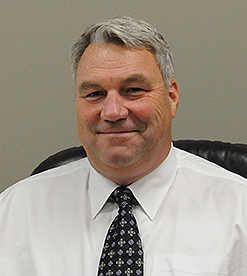Small Businesses Can Be Hit With White Collar Crime
 The typical organization in loses 5% of its revenues to fraud each year.
The typical organization in loses 5% of its revenues to fraud each year.
Although 5% may not sound like much, when you consider that the average profit margin in the U.S. is only 6.5%, a typical fraud occurrence could easily mean the difference between solvency and bankruptcy. Globally that translates to $3.5 trillion.
In 20% of cases caused losses exceed $1 million. Walmart posted 3.1 % and Big Oil averaged 5.1%. For larger organizations with such small profit margins it is easy to see how internal frauds have been able to destroy very successful companies along with their accounting/audit firms.
It can also happen to smaller companies as well.
Frauds lasted a median of 18 months before being detected with average fraud amounts ranging from $573,000 for executives to $60,000 for employees. The longer a fraud lasts and the higher level of authority the larger the losses. Fraud losses in the US are estimated to range from $300 billion to $600 Billion in the US. This estimate speaks to the difficulty of discovering and proving all frauds that occur. Even more challenging than detecting, investigating and prosecuting fraud is recovering the funds. On average 58% percent of companies that detect frauds recover $0.
The genesis of this problem has its roots in the 1980s. As Larry Crumbley writes in his Forensic and investigative accounting text book, “In the early 1980s intense competition caused the auditing fees to fall by as much as 50% from the mid-1980s to the mid-1990s. Thus, auditors had to cut costs by reducing the labor-intensive process of reviewing hundreds of corporate accounts. They grew more reliant on internal controls and worked less with account balances and entries. Because top executives can circumvent internal controls, they could manipulate the record and cook the books. Eventually the results were what happened to Enron, WorldCom, Xerox, Adelphia Communications, and the fall of Arthur Andersen in the early 2000s.”
These major failures of corporate audits were largely driven by CFOs and senior accountants who had learned the audit techniques as junior accountants and were able to control what records would be provided to the audit team. They knew exactly how to hide activities in other subsidiaries, partnerships and off shore accounts Enron used more than 700 partnerships in the Cayman Islands to help hide their activities. The scope of this transactional activity was such that the IRS could only estimate the potential taxes owned, not actually determine them. Such is the challenge to comprehensively analyze financial records when intentional fraud is perpetrated by insiders with accounting skills, access and authority. The vast majorities of frauds are uncovered by whistleblowers rather than audit systems.
Here are ways of preventing such instances from Tim Deehan President of Actionable Intelligence Strategies:
- Conduct random due diligence tests by qualified forensic accounting teams using the proper methodologies and technology tools capable of rapidly and automatically analyzing vast amounts of data held by a typical company. Due diligence efforts described herein should be unannounced, driven by the external forensic accounting team’s plan and given the authority to obtain ALL data requested immediately. Securing of all documentation and data is critical. Arthu
- An effective plan is essential for successfully detecting, investigating and ultimately deterring fraud in an organization. Critical elements of a plan are surprise.
- Advanced technology and technology skills are essential. Very often frauds are arranged as a “Soft Fraud” meaning that the perpetrators can create a plausible deniability for the scheme. Such techniques as intentional misuse of data systems wherein all necessary data is not captured can in the company systems and such omissions would be very hard to discover during an audit. Should the losses eventually be uncovered, the perpetrators can claim that the necessary data entry was simply “missed” as an oversight. Proving criminal intent would most likely not be possible without a confession. Such situation requires advanced data analysis and correlation skills not found with all forensic accounting firms. Look for a firm that specializes in leveraging technology to produce dramatic improvement of Business Outcomes.
Tim Deehan is the President of Actionable Intelligence Technologies. Headquartered in Dulles, VA, award-winning Actionable Intelligence Technologies is the nation’s leading supplier of solutions for financial investigations.

